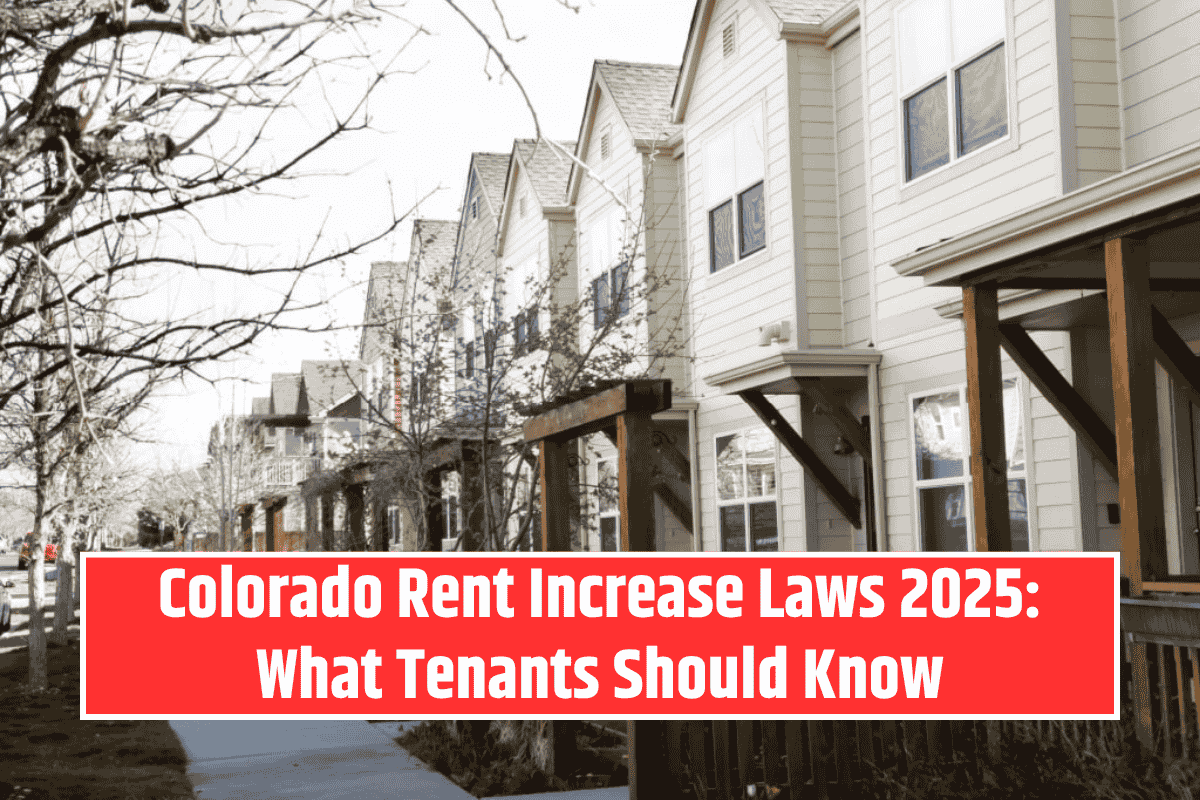In Colorado, mobile home park landlords have the right to increase rent, but they must follow certain legal rules to protect tenants. There is no set cap on how much rent can increase, but there are clear guidelines that landlords must follow to ensure fairness.
These laws are designed to prevent unfair or sudden rent hikes and ensure that tenants are well informed about any changes. If you live in a mobile home park, it’s important to know your rights and understand how rent increases should happen.
No Rent Cap, But Limited to One Increase Per Year
Unlike some other places, Colorado doesn’t have a rule that limits how much rent can increase in mobile home parks. However, there is a clear rule that says a landlord can only raise your rent once every 12 months, no matter your lease type.
This applies whether you have a month-to-month lease, a yearly lease, or no written lease at all. This rule applies to everyone living in the park and helps prevent landlords from making sudden or frequent rent hikes.
60 Days’ Advance Written Notice Required
Before a rent increase can take place, Colorado law says that the landlord must give you at least 60 days’ written notice. This rule applies no matter what type of lease you have, even if you’re on a month-to-month agreement or don’t have a formal lease. The notice should include:
- The new rent amount
- The date when the new rent will start
- The landlord’s contact details (if not already included in the lease)
This gives you time to prepare for the increase and ensures that you aren’t caught off guard by unexpected changes.
Situations Where Rent Increases Aren’t Allowed
There are situations where landlords cannot raise the rent, even if they provide the required notice. These include:
- The mobile home park is not registered with the Mobile Home Park Oversight Program (MHPOP).
- The landlord has unpaid penalties to MHPOP.
- There’s an unresolved court or agency order against the park.
- The park failed a water quality inspection and didn’t fix the issue by the deadline.
- The park violated maintenance laws and received a final order within the last 12 months.
If any of these issues are true, the landlord must fix them before they can legally raise the rent. Only after resolving the issue can they send a valid rent increase notice with the required 60 days’ notice.
What Happens if a Rent Increase Is Issued by Mistake?
Sometimes, a landlord might send out a rent increase notice when the park isn’t in compliance with the law. If this happens, the rent increase is considered invalid. Here’s what should happen next:
- The landlord must notify you that the rent increase is not going to happen.
- If anyone has already paid the higher rent, they must be refunded.
- Once the issue is resolved, the landlord can issue a new rent increase notice, but they must still provide 60 days’ notice and wait 12 months from the last increase.
How Rent Works with Different Types of Leases
Month-to-Month Leases:
If you have a month-to-month lease, your rent can be raised within the first year. However, the landlord must still follow the 60-day written notice rule and ensure the park is in full compliance with legal requirements.
Since the initial lease sets the base rent, raising it in the first year is allowed as long as the rules are followed.
Long-Term Leases:
If you have a long-term lease, such as for one year, your rent cannot be increased until the lease ends. The terms of the lease are legally binding, which means the rent will stay the same throughout the entire lease period.
Late Fee Rules for Rent Payments
If you are late in paying your rent, the landlord can charge a late fee. The late fee can either be:
- $50, or
- 5% of the overdue rent amount (whichever is higher).
However, the landlord can only charge this late fee if the rent is paid late by at least 7 days for renters who pay for both the home and the lot, or 10 days for homeowners.
What Landlords Need to Do to Be in Compliance
For a rent increase to be legal, the landlord must:
- Submit all the required registration documents to MHPOP.
- Pay any overdue fees or penalties.
- Get confirmation from MHPOP that the registration is active.
- Provide a 60-day written notice of the rent increase.
If a park is not registered or is “pending” registration, any rent increase notice sent during that time is not valid.
How to Check a Park’s Registration Status
You can check if a park is registered by looking at the list of registered parks on MHPOP’s website. If the park is listed as “pending,” it means the registration is still under review, and the landlord cannot raise the rent until the process is complete. If you’re unsure, you can contact MHPOP directly for more information.
While Colorado doesn’t set a limit on how much rent can increase in mobile home parks, there are strict rules in place to protect tenants. Landlords must provide at least 60 days’ notice before any rent increase, and they can only raise rent once a year.
They must also ensure the park is fully compliant with legal requirements before issuing any rent increases. If you’re a tenant in a mobile home park, understanding these rules can help you avoid unfair rent hikes and ensure that your landlord follows the proper procedures.












